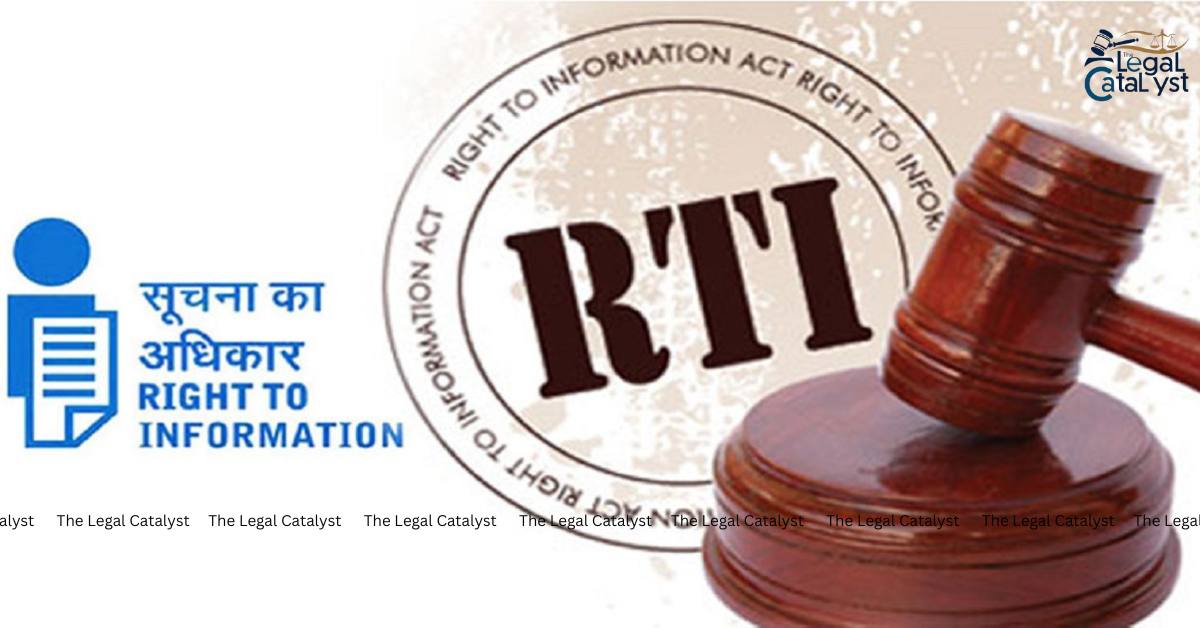Empowering Every Indian to Question Authority
What is the RTI Act?
The Right to Information Act, 2005 is a revolutionary law. It empowers Indian citizens to seek information from government bodies. This act holds them accountable.
This Act makes government functioning transparent, participatory, and corruption-resistant by giving you the legal right to ask questions.
Why RTI Matters
Before Right to Information, most government decisions happened behind closed doors. Today, any Indian citizen can demand answers, including:
- How funds are being used
- Why a file is delayed
- Recruitment decisions
- Tender processes
- Policy details, implementation status, and more
It’s your right—enshrined under Article 19(1)(a) of the Constitution as part of freedom of speech and expression.
Key Features of the RTI Act
| Feature | Description |
|---|---|
| 📅 Enacted | 12 October 2005 |
| 👤 Who Can Apply? | Any Indian citizen |
| 🏛️ Applies To | Central, State, and local governments; public authorities and bodies |
| ⏳ Response Timeline | Within 30 days of RTI application |
| ❌ Exceptions | National security, personal info, trade secrets (Sec 8 of the Act) |
| 💸 Application Fee | ₹10 (usually, may vary by state) |
How to File an RTI Application (Step-by-Step)
- Identify the Department
Find the correct Public Information Officer (PIO) of the concerned department. - Write Your Right to Information (RTI)
Include:- Your name and address
- Specific information you seek
- Application in English, Hindi, or regional language
- Pay the Fee
Usually ₹10 via postal order, court fee stamp, or online (if available). - Send It
Submit by post, in person, or online via rtionline.gov.in for central government departments. - Wait for Response
PIO must reply within 30 days, or 48 hours in life-and-death matters.
What Kind of Info Can You Ask?
✅ Government spending
✅ Project progress
✅ Official decisions
✅ Recruitment records
✅ Exam evaluation methods
✅ Land records
✅ Delays in service delivery
✅ Status of complaints or applications
🚫 But you cannot ask:
- Personal details of others (unless larger public interest)
- National security info
- Cabinet papers (until decisions are made public)
- Trade secrets, intellectual property, etc.
What If They Don’t Respond?
If there’s no reply in 30 days or the answer is unsatisfactory:
- File a First Appeal – to the Appellate Authority of the same department
- File a Second Appeal – with the Central or State Information Commission
- File a Complaint – under Section 18 for denial or refusal to accept application
📝 Penalty: The PIO can be fined ₹250/day (up to ₹25,000) for delay or refusal.
Real-World Impact of RTI
- Exposed scams (e.g. Adarsh Housing Scam)
- Brought clarity in land records
- Helped job seekers check recruitment results
- Pushed public works like roads, water supply, and school facilities forward
RTI is not just paperwork—it has changed lives and saved taxpayers’ money.
The Right to Information Act is more than a law—it’s a citizen’s weapon against corruption and inefficiency.
If you’ve ever wondered:
- Why your road isn’t fixed?
- Where the local MLA’s development fund is going?
- Why your RTGS took 10 days?
Right to Information is your legal path to the answer.
Key Takeaways:
✔️ Right to Information (RTI) empowers every Indian to ask questions
✔️ Public authorities are legally bound to reply
✔️ Use rtionline.gov.in for digital filing
✔️ Appeals and complaints ensure your right isn’t denied
✔️ It’s your fundamental right—use it
Also Read
7 Legal Mistakes That Can Kill Your Startup (And How to Avoid Them)
Can You Record a Call or Conversation Legally in India?






